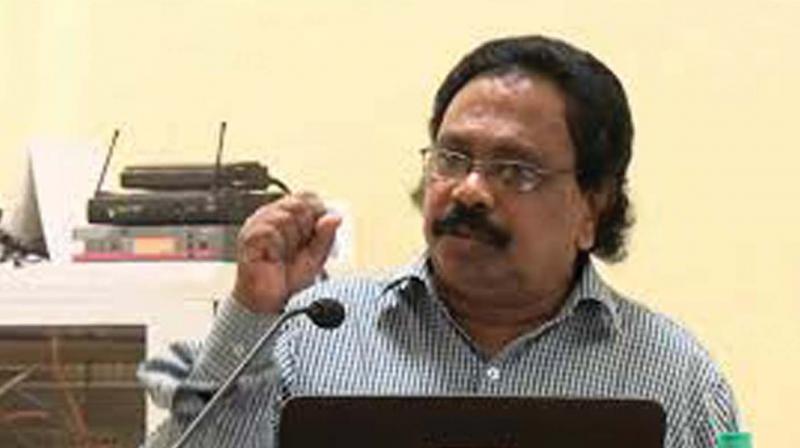Lack of vision has hit state's higher education: M Kunhaman

Thiruvananthapuram: What ails higher education in the state? Kerala was once known for its high standards of education, but it no longer enjoys that reputation. According to experts, the increasing politicisation and communal interests are playing havoc in the education sector. Prominent economist M. Kunhaman, professor at School of Rural Development of Tata Institute of Social Sciences (TISS), Tuljapur campus, Maharashtra, has criticised the present system of dividing the top posts in the universities among four prominent communities---Ezhavas, Muslims, Christians and Nairs. The important decision-making bodies like syndicate and senate are also loaded with such sectarian interests.
As a result, candidates without required qualification are appointed as vice-chancellors. This has led to a situation where the court had to intervene and terminate the appointment of a vice-chancellor, said Mr Kunhaman. The right and left parties divide the posts among prominent communities. The only agenda of the authorities is to construct new buildings and make new appointments leading to corruption in the university system. The mindset that development of higher education meant creating more buildings has to change. The energy and money spent for it should be used for more qualitative purposes, he said.
Most of the education planners and education ministers do not have a vision for developing centres of higher education in the state. "The only education minister in the state who had a vision for higher education sector was M.A. Baby. However, he also failed to make the vision a reality," said Mr Kunhaman. Democracy does not mean the process of ensuring adequate representation for numerically prominent communities. The appointments in the universities can be made democratic only if those who have long-term vision are selected. "Take for example the case of a driver. Only a person who has the skill to safely steer the vehicle is selected for the post," he said.
The state does not have education centres of excellence like in western countries due to the lack of vision of the educational planners, he said. The sharing of the posts among the prominent communities has also resulted in the exclusion of dalits and adivasis from the higher education sector. Education is used as a tool for their exclusion from the social sector, he noted. No serious efforts have been made to address the marginalisation of these communities as they do not enjoy social power. There were several persons in these communities who are well-qualified. However, the political parties do not feel it important to accommodate them.
In any social process, the central question is power which is used by the strong against the weak to maintain status quo. There is a close relationship between the theory of power and the theory of oppression. Only a low number of dalits and adivasis are enrolled in higher education. The invisibility of the scheduled categories in the higher levels of learning and research is a matter of concern. This also restricts their chances to participate in the non-agricultural sectors of the economy. Even the left parties which were supposed to take up the issues of the marginalised communities have failed to address this issue, according to Mr Kunhaman.

